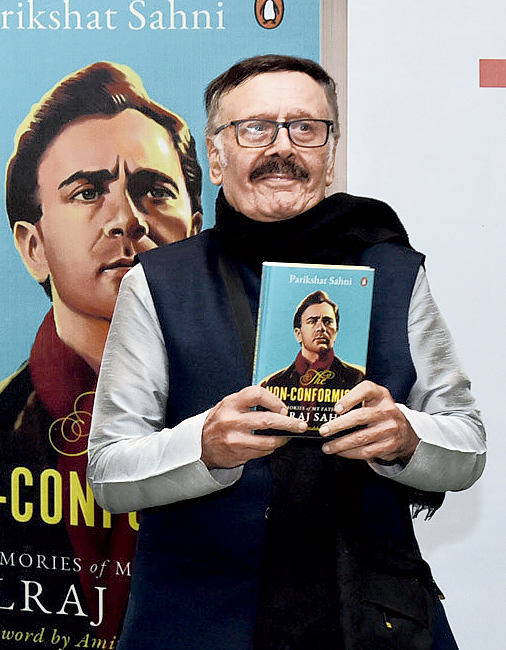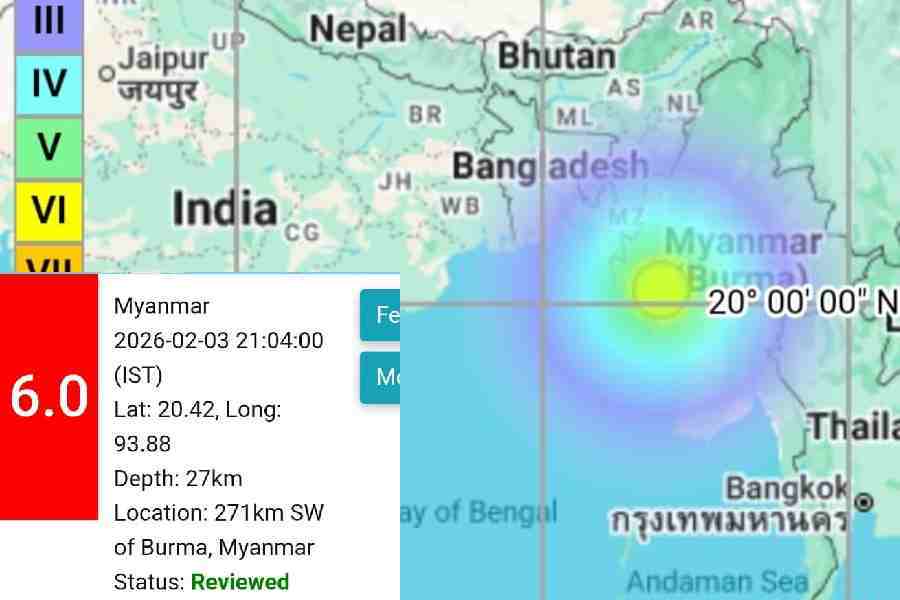
Parikshat Sahni at the launch of The Non-Conformist Picture by Sanat Kr Sinha
The book that Parikshat Sahni has written on his father, Balraj Sahni, titled The Non-Conformist, is much like the conversation that took place at its launch last Friday at Calcutta Club, under the banner of the Tata Steel Kolkata Literary Meet.
It was a son’s reminiscences about his father. The reference to films was almost accidental, through anecdotes that underlined his convictions and idiosyncracies.
At the launch, at the forefront of a room full of hoary-haired admirers of the doyen of Indian cinema of the 50s and 60s sat Soumitra Chatterjee, discharged recently from hospital. “When I heard that the book was about my idol I had to come. There is no one else in Indian cinema I aspire to be like,” he said.
Parikshat, now 79 and still as handsome as his father was, struck a chord with the audience by pointing out that his name was suggested by Rabindranath Tagore when Balraj was teaching at Visva-Bharati in the late 1930s. “Later when I was born, my grandfather wanted to name me Arjun but who could disregard the great man’s word? The name was spelt the way it would be pronounced in Gurmukhi.” Incidentally, Tagore had also urged Balraj to write not in Hindi but his mother tongue, an advice he took to heart.
He confesses that his relationship with his father was difficult. “It is only now that I appreciate him fully.” The reason was the chasm created by his years of absence after his birth.
Little Parikshat was raised by his grandparents near Rawalpindi while his parents worked in London as announcers in BBC’s Hindi programmes for Indian soldiers serving in the World War. “Whenever his voice came on the radio there would be tremendous excitement at home and I’d be told that it was my father’s,” said Parikshat, who finally met his father when he was about five. The boy, uprooted from his grandparents’ place, had a tough time adjusting to his parents’ British ways.
But Parikshat recognises that his father “made extraordinary efforts to befriend” him. “He asked me to call him by name — not even ji — and would later offer me my first cigarette and drink.”
It was a Soviet film called Circus seen in London that sowed the germs of Marxism in Balraj and he became an active member of the Indian People’s Theatre Association on his return.
Some of the reminiscences marked out Balraj’s dedication to his craft.
During the shooting of Do Bigha Zamin, possibly his best-known work other than Garm Hawa, he would run barefoot on the burning asphalt of Calcutta roads, practising how to pull the rickshaw for the role of Sambhu. “He developed blisters on the soles of his feet that nearly killed him.”
The book, said director Anik Dutta, who sat in on the conversation, helped him join the dots about what he knew about Balraj Sahni. Members of the audience must have felt the same way at the end of the conversation.










